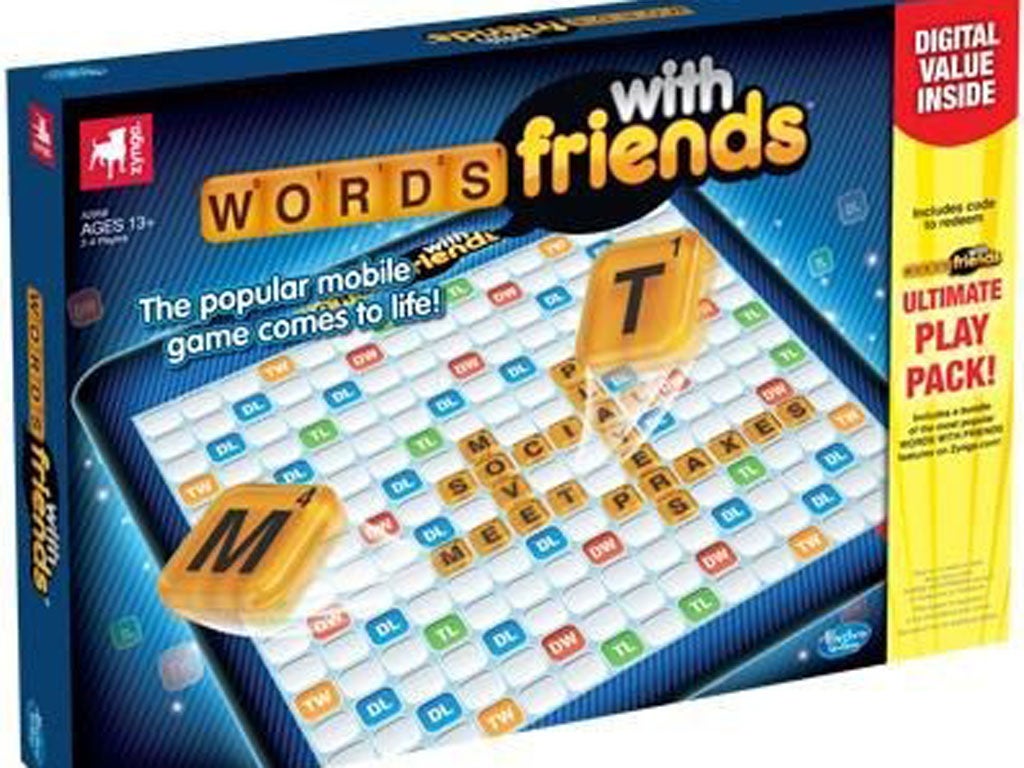Why traditional board game manufacturers are getting their online rivals on board
Thought the age of cardboard, dice and cards was over? Think again. Instead of battling online-games developers in court, firms like Hasbro and Mattel are teaming up with them. Simon Usborne reports

Your support helps us to tell the story
From reproductive rights to climate change to Big Tech, The Independent is on the ground when the story is developing. Whether it's investigating the financials of Elon Musk's pro-Trump PAC or producing our latest documentary, 'The A Word', which shines a light on the American women fighting for reproductive rights, we know how important it is to parse out the facts from the messaging.
At such a critical moment in US history, we need reporters on the ground. Your donation allows us to keep sending journalists to speak to both sides of the story.
The Independent is trusted by Americans across the entire political spectrum. And unlike many other quality news outlets, we choose not to lock Americans out of our reporting and analysis with paywalls. We believe quality journalism should be available to everyone, paid for by those who can afford it.
Your support makes all the difference.The big players in board games have traditionally approached their online rivals by crushing them. In 2008, Hasbro successfully sued the Indian developers of Scrabulous, a popular Facebook game inspired by Scrabble, Hasbro's most famous brand. Four years later, the gaming giant is not only tolerating its latest digital competitor – it's on the same team.
Words With Friends is just about different enough to be legal, but Christmas shoppers will recognise its debt to the 1948 original. Online, the game boasted 20 million users at its peak, the majority playing on smartphones via Facebook. Now, its maker, the US social gaming firm, Zynga, has swapped pixels for cardboard and signed up with Hasbro. "The popular mobile game comes to life!" says the box, right, which is on sale now for £20 and gives the firms equal billing.
The unlikely marriage will have followed a lengthy engagement but arguably reveals much about the unpredictable and relative fortunes of the digital and physical words. Zynga should have been the toast of Wall Street when it floated less than a year ago but shares in the developer have dropped more than 75 per cent since, and it announced job cuts last month. The popularity of its games, meanwhile has fallen almost as sharply (nearly by half in the case of Words With Friends).
Board games have proved to be relatively resilient as families still favour tradition, particularly around Christmas (or in the case of the blackout in New York City last week, when there were reports of a board gaming boom). The UK industry was worth £167m last year, down only 4 per cent on 2010, according to Frederique Tutt, a toy industry analyst at NPD. "Board games are alive and kicking and now capitalising on licences from the digital world," she says.
The Hasbro deal, which also includes Zynga games FarmVille and Draw Something, gives it ammunition in its real fight, against Mattel (who make Scrabble outside of North America). Its rival stole a march last year by winning the licence for Angry Birds. Hasbro has also hit back with Monopoly zAPPed, which brings the smart phone into the heart of the board as a virtual bank cashier, proving two things: that you're better off embracing rather than trying to squash the digital world: and that, regardless, it rarely pays to play nice.
Join our commenting forum
Join thought-provoking conversations, follow other Independent readers and see their replies
Comments